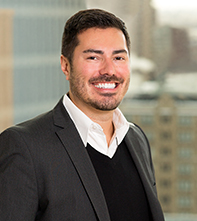Identifying Barriers to HIV Prevention for Young Gay Men
Study examines awareness, use of life-saving drug among those most at risk
Get all our news
There’s still a long way to go to increase awareness and uptake of PrEP in the United States. Many people—especially in more rural areas—don’t know who to talk to [about it].”
Gregory Phillips II
Research assistant professor of medical social sciences and IPR associate

IPR experts examine awareness of pre-exposure prophylaxis, a drug that prevents HIV infection.
While rates of HIV infections have fallen for Americans overall, one demographic group, gay teens and young adults between the ages of 13 and 24, now accounts for more than 70 percent of new cases. Given their high risk, they stand to benefit the most from a new drug that can prevent HIV infection, according to Gregory Phillips II, research assistant professor of medical social sciences and IPR associate.

In AIDS and Behavior, Phillips and principal investigator Brian Mustanski, professor of medical social sciences and an IPR associate, along with their colleagues, explore awareness and use of pre-exposure prophylaxis (PrEP), a drug that prevents HIV infection, among young men who have sex with men.
To investigate, the researchers surveyed a sample of 759 racially diverse, young gay men aged 18–29 about what they knew about and/or their use of PrEP. While 67 percent reported being aware of the drug, less than 9 percent said they used it. For those who did not use it, more than 30 percent had either never heard of PrEP—or had heard of it but did not know what it was.

“There’s still a long way to go to increase awareness and uptake of PrEP in the United States,” Phillips said. “Many people—especially in more rural areas—don’t know who to talk to [about it].”
Uncertainty about how to access PrEP was the most common reason respondents gave for not using the drug. Other barriers included its price, concerns about its side effects, and lacking health insurance.
Mustanski called for giving adolescents access to PrEP for HIV prevention, just as they can access HIV testing and contraception. Phillips, meanwhile, recommended doing more to increase awareness of PrEP, especially in areas outside of cities.
“There’s not very much marketing at all around PrEP, and even people who do hear these messages tend to be limited to cities,” Phillips said. “There are many young men who are gay or bisexual living in the suburbs who just don’t know about this intervention.”
With the Chicago Department of Public Health, Phillips is currently working on several projects that could inform future interventions to address the lack of awareness and uptake of PrEP. He and his collaborators are targeting high-risk populations like young gay men and transwomen for PrEP roll-out, and will examine not just uptake, but also awareness among both healthcare providers and study participants.
Gregory Phillips II is research assistant professor of medical social sciences and director of the Evaluation, Data Integration, and Technical Assistance (EDIT) Program within the Institute for Sexual and Gender Minority Health and Wellbeing (ISGMH). Brian Mustanski is professor of medical social sciences, psychiatry, and behavioral sciences, and director of the Institute for Sexual and Gender Minority Health and Wellbeing. Both are IPR associates.
This research was supported by the National Institute on Drug Abuse under Award No. R01DA035145.
Published: June 13, 2016.